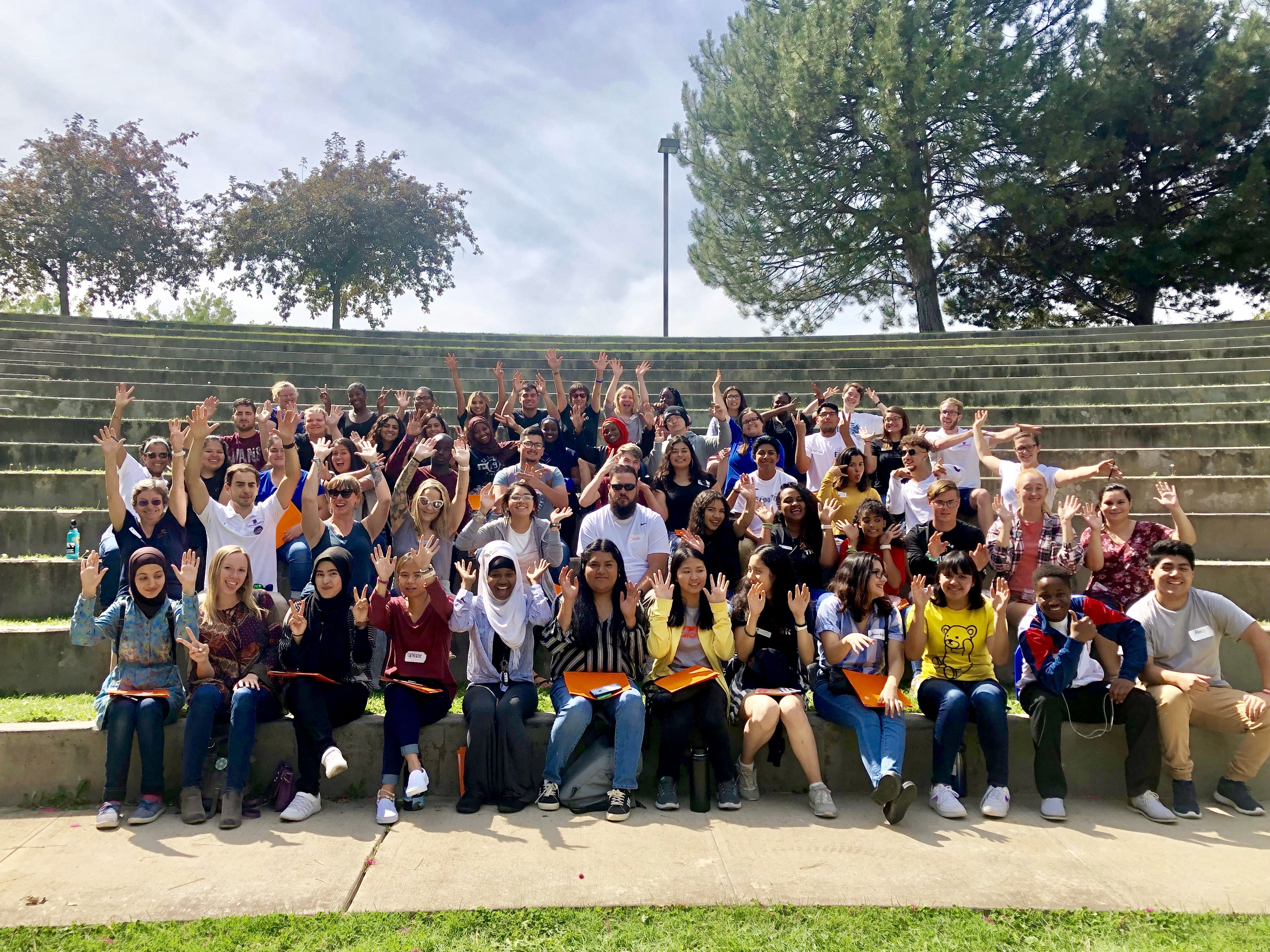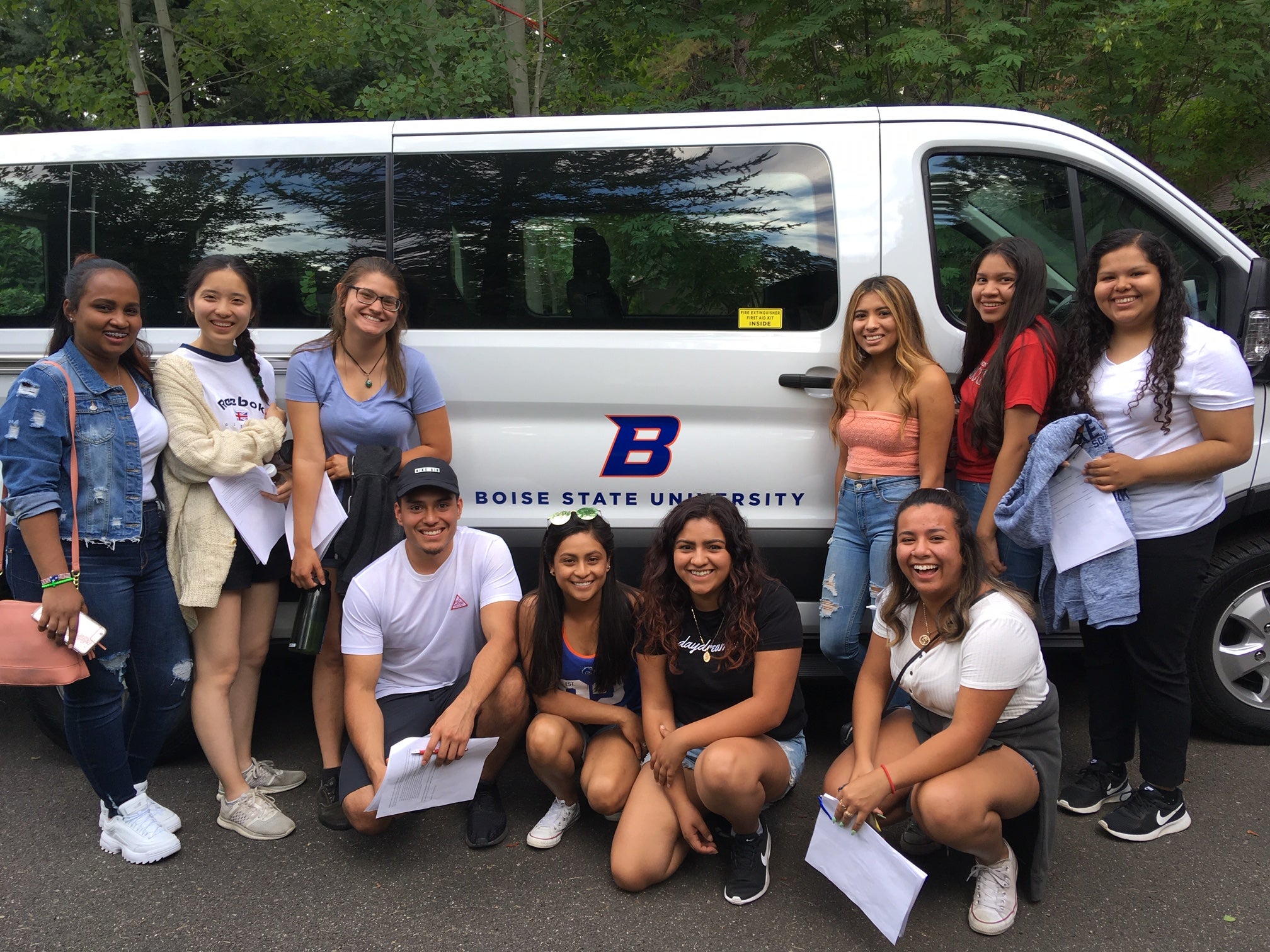
Gregory Martinez, director of Boise State’s Center for Multicultural and Educational Opportunities housed in the College of Education, has been helping vulnerable student populations succeed in higher education for more than 30 years. This year in particular, his hard work will be paying off for students: Martinez applied for – and was awarded – five Department of Education grants totaling almost $7.1 million in funding over five years.
The TRIO Student Support Services (SSS) grants, which take effect Sept. 1, 2020, have been awarded to Boise State’s Rising Scholars program ($398,299 annually), Teacher Preparation program ($233,781 annually), STEM ($261,888 annually), SSS Veterans ($261,888 annually) and students with disabilities ($261,888 annually).
All of the student programs serve limited income and first-generation college students. Martinez says the veterans and STEM grants will serve 120 students each year; the disability grant will serve 100 students; TRIO Teacher Prep will serve 125 aspiring teachers; and TRIO Rising Scholars will serve 180 students.
The grants will fund academic tutoring, advising, education/counseling to improve financial and economic literacy, information and assistance in applying for federal student aid, and assistance in applying for admission and financial aid to graduate school.
Renewed funding for TRIO Rising Scholars and TRIO Teacher Prep
Martinez has received federal funding for the TRIO Rising Scholars program and TRIO Teacher Prep in the past – and grantees who can show that they are meeting program objectives have a better shot and renewed funding. Martinez has that track record.
During the 2018-19 academic year, Boise State TRIO Rising Scholars students had a 95 percent persistence rate (meaning they enrolled in consecutive semesters in college), a 99 percent good academic standing rate and a 67 percent six-year graduation rate.
For all SSS programs, “it is required that two-thirds, or 66 percent of students served be both limited income and a first-gen student. We were at 82 percent,” Martinez said.
During the 2018-19 academic year, Boise State’s TRIO Teacher Prep program had a 86 percent persistence rate, a 91 percent good academic standing rate and 72 percent of participants were both limited income and first-generation college students. (Martinez noted that there currently is no six-year graduation rate for the TRIO Teacher Prep program because it is just now finishing its fifth year.)

New federal grants will aid STEM students, veterans and students with disabilities
However, three of the federal grants Martinez applied for were relatively new territory – those addressing STEM, veterans and students with disabilities.
“Competition is very stiff on these grants,” Martinez said. “Because of this, proposals required a perfect score to receive funding this year… I figured, I’m just going to try submitting all of these. It’s kind of unbelievable that we got them all.”
Martinez stresses that he couldn’t have done it alone. Dean of Students Chris Wuthrich; Wendy Turner, director of the Educational Access Center; Josh Baros, assistant director of TRIO Student Support Services; and Mark Heilman, director of Boise State’s Veterans Upward Bound program were all instrumental in crafting the grants or providing space to house the programs.
“Nationally, students with disabilities tend not to enroll in higher education. For those who do, retention and graduation rates lag behind peers without disabilities,” said Wendy Turner, director of the Educational Access Center.Wendy Turner
She explained that while students who connect with the center for academic accommodations perform better than their peers nationally, retention and graduation rates for these students at Boise State are still low.
“There has been a lack of additional support,” she said. “No longer! The TRIO Disabilities SSS grant will provide excellent individualized support as well as a sense of community for Boise State students with disabilities and will be instrumental in helping students achieve their graduation goals.”
“Because of these grants, we’re able to keep our advising ratios low and take a lot more time with students and get to know them well,” Martinez added. “We’ll be able to hire new staff and provide a strong peer tutoring program to even more students.”
The Center for Multicultural and Educational Opportunities also helps students make informed career choices, exposes them to cultural events and to academic programs that would be otherwise unavailable, and peer mentoring opportunities.
The center also is able to pass funds directly on to eligible Pell awarded students, providing a minimum of $600 and as much as $1,500 in grant aid to students in need. All of the grants were written to include funding for a handful of students to attend research conferences to showcase their work and help build the networks they’ll need to be successful in graduate school and in their future careers.
– By Cienna Madrid